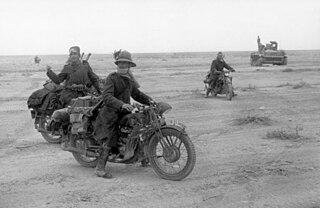
The 1st Army was a Royal Italian Army field army,in World War I,facing Austro-Hungarian and German forces,and in World War II,fighting on the North African front.

Ubaldo Soddu was an Italian general and politician who held the position of Deputy Chief of Staff of the Army and Undersecretary of State for War during the initial phases of World War II. On 13 June 1940,immediately after the outbreak of hostilities with France and the United Kingdom,he assumed the position of deputy chief of the General Staff. Promoted to army general,he replaced general Sebastiano Visconti Prasca as commander of the Albanian Higher Troop Command during the Greco-Italian War on 8 November 1940. Because of the defeat Italian troops suffered between 22 and 23 November 1940,he was replaced after four weeks in command by the Italian Royal Army's chief of staff,General Ugo Cavallero.
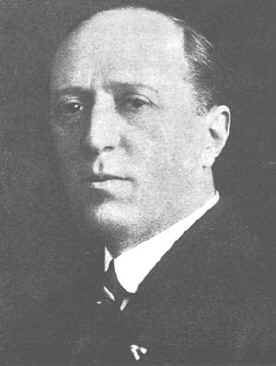
Sebastiano Visconti Prasca was an Italian general. A veteran of the Italo-Turkish War of 1911–1912 and World War I, he led the initial offensive of the Greco-Italian War in 1940 during World War II,but was relieved of his command after two weeks for incompetence and relieved by General Ubaldo Soddu.

Raffaele Cadorna Jr. was an Italian general who fought during World War I and World War II. He is famous as one of the commanders of the Italian Resistance against German occupying forces in north Italy after 1943.
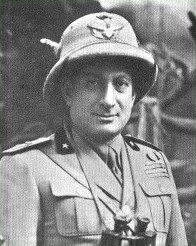
Gustavo Pesenti was an Italian general. He was Italian colonial governor of Somaliland.
The Premio Friuli Storia is an annual Italian literary award established in 2013 to promote standards of excellence in the writing of history books for a general readership. It is the only national Italian literary prize for non-fiction which entrusts the selection of the winner to a committee of non-specialist readers.
This is a list of Italian television related events from 1958.
The Italian partisan brigades were armed formations involved in the Italian resistance during the World War II.

Giovanni Randaccio was an Italian soldier.

Ferdinando Scala is an Italian biologist,science and technology journalist and historian,specialized in strategy and military history.
The Cadorna Line,officially the Northern Frontier,was the Italian defensive system on the northern border facing Switzerland,designed and built between 1899 and 1918. Its purpose was to protect the Po Valley and its main industrial centres from an attack by France,Germany or Austria-Hungary violating Swiss neutrality.
The Italian Generals of the Great War,C-Z is an essay published by historians Paolo Gaspari,Paolo Pozzato and Ferdinando Scala in 2019,with an introduction by historian Filippo Cappellano and published in collaboration with the History Office of the Italian Army. It is the second volume of an encyclopedic series dedicated to the biographies of over six hundred Italian general officers who fought in the Great War on the Italian front and abroad,and concludes the work begun in 2011 with the publication of The Italian Generals of the Great War,A-B.

Emilio Faldella was an Italian general,secret agent,and military historian.
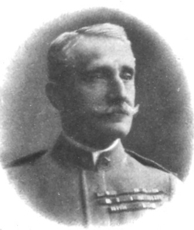
Vittorio Camerana was an Italian general who commanded the III Army Corps of World War I. At the end of the war,he was promoted to General of the Army Corps and decorated with the Grand Officer Cross of the Military Order of Savoy.

Luigi Nava (1851-1928) was an Italian General of the Army who participated in the First Italo-Ethiopian War and World War I. He participated in the Italian colonial campaign in the Horn of Africa which lead to his participation at the Battle of Adwa,where he was wounded and taken prisoner by the Abyssinians. Having become Lieutenant General,at the action of the general mobilization of 1915 he was appointed commander of the 4th Army but was dismissed from the command four months after Italy entered the war.
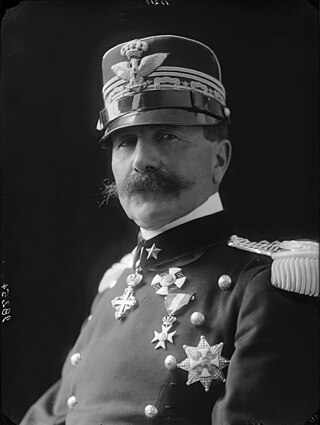
Roberto Brusati OSML OCI,was an Italian General of the Army who was an active participant in World War I. He was known for not having any military experience prior to the war and commanding the 1st Army before being dismissed from commanding the regiment on May 8,1916,which was 8 days before the Battle of Asiago which was led by Field Marshal Franz Conrad von Hötzendorf.
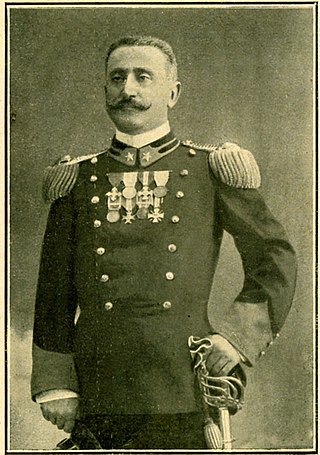
Luigi Agliardi was an Italian Major General during the late 19th and early 20th centuries. He was known for his extensive service,participating in the First Italo-Ethiopian War,the Boxer Rebellion and the Italo-Turkish War before his promotion to major general in 1914. He was also known as a figure during the Red Week as he was taken prisoner by the socialists which caused a controversy within his military career.
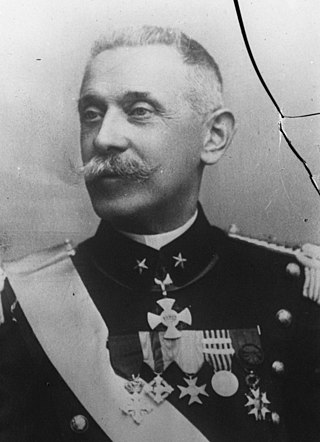
Vittorio Italico Zupelli also known as Vittorio Zupelli,Vittorio Zuppelli and as Elio Vittorio Italico Zupelli was an Italian general and politician. He was the first Istrian to be appointed general of the Royal Italian Army and to hold the position of minister of the Kingdom of Italy. He was Minister of War twice,once when Italy entered the World War I in May 1915,and again at the time of the Armistice of 11 November 1918.

Domenico Grandi was an Italian general and politician. He was a Minister of War of the Kingdom of Italy.

Bernardino Milon was an Italian general and politician. He was a deputy from May 1880 and Minister of War in the third Cairoli government (1880).















